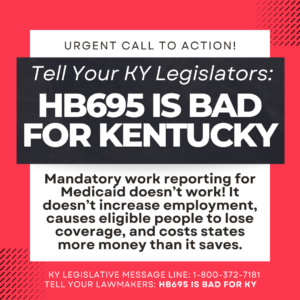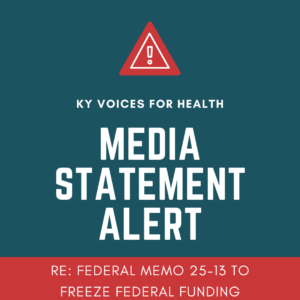The United States Senate made major headlines this week with the passage of H.R.5376, the Inflation Reduction Act of 2022. This broad-ranging bill features reconfigured versions of many of the Biden administration’s key promises and policy goals (formerly under the umbrella of “Build Back Better”). Approved by the Senate with a simple (and narrow) 51-vote majority, the bill is first and foremost a symbol of the compromise it took to get it done. No Republicans voted for the bill, and few, if any, Democrats would be able to say they are entirely happy with it. But, that is often the nature of policy-making, with wins and losses coming in equal measure.
Currently the bill has moved back to the U.S. House of Representatives, where all signs point to its passage on Friday. Once President Biden signs it into law, the federal government will begin making one of its largest investments on climate, and one of the biggest steps towards affordable drug prices, in the nation’s history. That doesn’t come cheap, with $433 billion in proposed spending on climate, energy, and healthcare programs offset by an estimated $739 billion in new revenue. Those are big numbers. Let’s take a look at some things the bill DOES and DOESN’T do…
For the very first time, the federal government is set to negotiate drug prices for the Medicare program. With nearly 50 million Americans receiving their prescriptions through Medicare Part D, that’s a huge chunk of the retail drug market… and some serious bargaining power.
The Bill DOES… Allow Medicare To Negotiate on Drug Prices
For the very first time, the federal government is set to negotiate drug prices for the Medicare program. With nearly 50 million Americans receiving their prescriptions through Medicare Part D, that’s a huge chunk of the retail drug market… and some serious bargaining power. But the majority of Medicare’s prescription spending is on a relatively small list of drugs, and there’s an even smaller subset of drugs lacking a cheaper generic. This bill will attempt to target those high-cost prescriptions.
The rollout for negotiations is intended to be gradual, targeting ten top-spenders in 2026, then adding more to the negotiation list (including Part B drugs) over the next several years. Right now prescription drugs account for around $1 out of every $5 Medicare spends, so there’s enormous savings potential. It’s a key piece of Congressional Budget Office’s deficit reduction projections. It’s also common sense, and overwhelmingly supported by Democrats, Independents, and Republicans in polling.
The Bill DOESN’T… Cap Costs For Everyone
For those 65 and older, there are some significant savings to look forward to. In addition to direct negotiation, reforms include a $2,000 per year maximum in out-of-pocket costs for Medicare beneficiaries and required reimbursements for any prescription price increase that exceeds the rate of inflation. Kaiser Family Fund found half of all drugs covered by Medicare were guilty of this in 2020. While that’s great news for seniors, for the rest of us there’s still work to be done.
And while the new bill caps the cost of insulin to $35 a month for Medicare members, a bid to cap insulin copayments for everyone failed in the budget process. This was one of the aspects of the bill that had bipartisan support. Hopefully that’s a signal there’s enough middle ground for a separate, insulin-specific bill. Medicare’s new role as negotiator could eventually result in a fairer retail drug market for everyone, but a copay cap would do nothing to aid the uninsured. Those without coverage are forced to bear the full brunt of inflated pricing and often have to pass that burden right back into the healthcare system, driving up costs even further.
Your insurance premium should not function like your cable bill, where you get a sweet introductory offer only to see the price suddenly skyrocket. Fortunately, the Inflation Reduction Act features an extension of ARPA’s advance premium tax credits until 2025.
The Bill DOES… Extend Premium Tax Credits (For Now)
2021’s American Rescue Plan strengthened the insurance premium tax credits available for Affordable Care Act plans. In Kentucky, that means more people have been eligible for more savings through the Kynect exchange. But without extension from Congress, these additional credits would expire in 2023. Your insurance premium should not function like your cable bill, where you get a sweet introductory offer only to see the price suddenly skyrocket. Fortunately, the Inflation Reduction Act features an extension of the advance premium tax credits until 2025. In the meantime we must work to make these credits long-term and sustainable instead of temporary solutions, leaving families to wonder when they’ll stop being able to afford their insurance.
The Bill DOESN’T… Fill the Coverage Gap in Non-Expanded States
For the twelve remaining states yet to expand Medicaid through the Affordable Care Act, things are even tougher. Because the ACA intends low-income individuals to receive their coverage through expanded Medicaid, states that did not adopt it created a coverage gap. Adults in these states can find themselves making too much to qualify for Medicaid but not enough to qualify for ACA tax credits, which often leaves them without coverage for themselves or their families. Unfortunately, this attempt to fix the coverage gap at the federal level failed, leaving some of our low-income neighbors in the lurch, unable to afford the coverage or healthcare they need. We must work to ensure every American has access to affordable, quality care regardless of the political winds in any given state government.
Climate justice is health justice.
Our health is inextricably linked to the health of our environment. The kind of disasters Kentucky has experienced recently cause physical and emotional trauma, exacerbate chronic health conditions, and further limit the often already-limited health care resources available in affected areas.
The Bill DOES… Combat Climate Change
Climate justice is health justice. Our health is inextricably linked to the health of our environment… that doesn’t just mean fighting for cleaner air and water, it means living in a world where once-in-a-lifetime weather events, the kind of disasters Kentucky has experienced recently, aren’t commonplace. These disasters cause physical and emotional trauma, exacerbate chronic health conditions, and further limit the often already-limited health care resources available in affected areas.
The Inflation Reduction Act is the single most significant expenditure on climate in our history. With this massive investment in clean energy, experts predict greenhouse gas emissions will fall by 40% (pre-2005 levels) within the decade. But with the ultimate goal of cutting emissions by 50% in that time, there is still more work to do at the federal, state, and local levels.
The Bill DOESN’T… Solve Climate Change
This is a welcome investment that would’ve been even more welcome ten years ago. Of particular benefit to Kentucky communities is a long- awaited permanent extension on a coal tax for the Black Lung Trust Fund, which benefits miners disabled by pneumoconiosis. Elsewhere, the bill provides funds for “clean” hydrogen and the carbon credit offset system, both of which have become increasingly controversial among energy experts. There’s also the sort of carve-outs and kick-backs for fossil fuels you’d expect to see in a bill this large, and which, at the very least, serve at cross-purposes to its stated goals. This means further advocacy is needed… we must continually evolve our thinking to meet this evolving crisis.
IN SUMMARY
You can read about the rest of the bill here, with special thanks to the Kentucky Center for Economic Policy for their analysis. The Inflation Reduction Act of 2022 is a big swing from the federal government that promises some truly ground-breaking, game-changing impacts on the lives of everyday Kentuckians. More than anything, it’s proof that big things are still possible in government and the hard work of advocates fighting daily for their policy issues still pays off. The passage of the Inflation Reduction Act should energize us, but it should also remind us our work continues.
To learn more about the author, visit: https://kyvoicesforhealth.org/our-team/.




